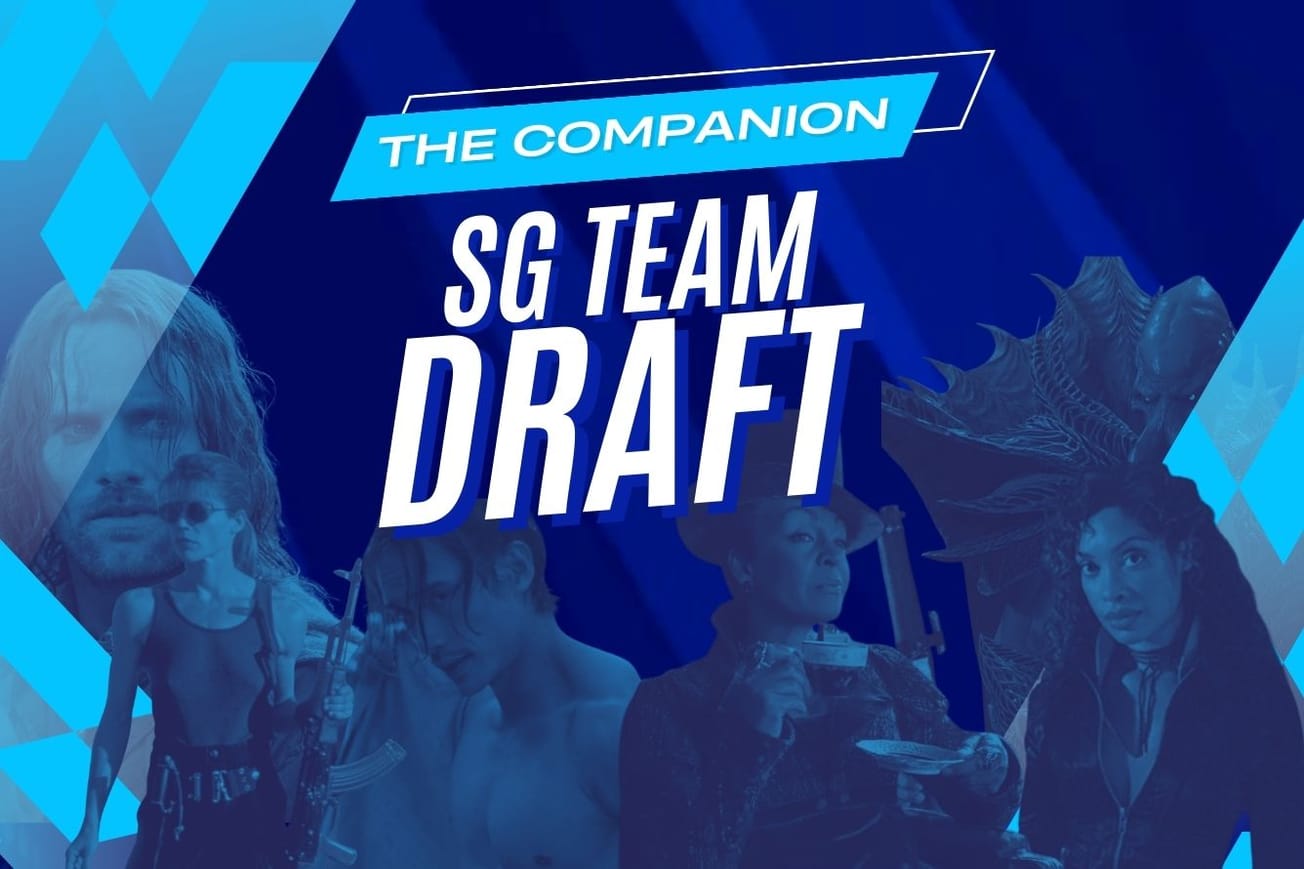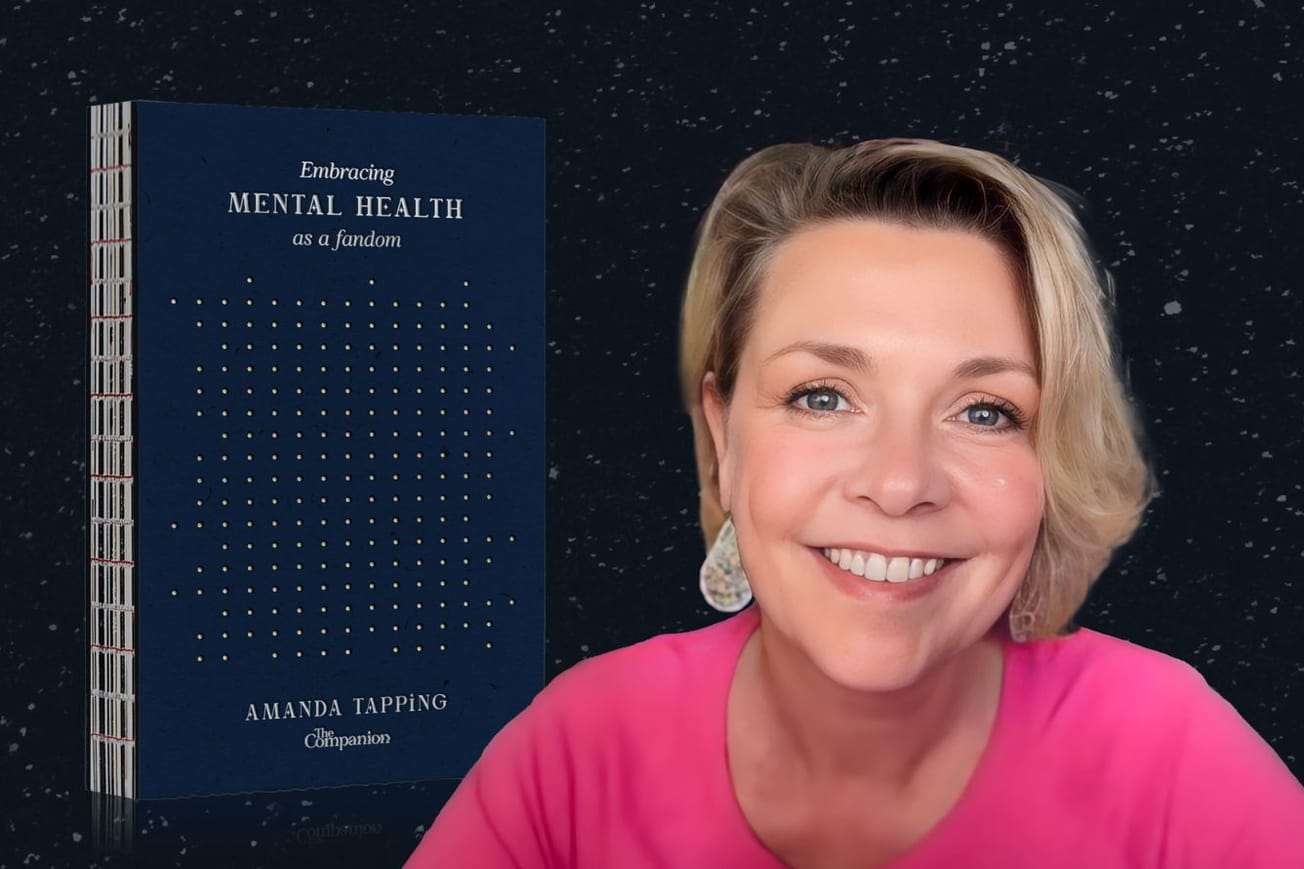Dr. Meredith Rodney McKay is not your typical TV action hero. Yet, that might be what has made him a Stargate legend. The character’s arc over three Stargate series has seen him overcome the kinds of shortcomings and frailties that affect all of us and has helped to make him one of the most accessible characters in the franchise.
Yet, there was little reason to believe anyone would like McKay – played by David Hewlett, then best known for Vincenzo Natali’s cult sci-fi horror Cube (1997) – when he entered the Stargate universe in Stargate SG-1’s fifth season episode, ‘48 Hours’ (S5, Ep14). On his debut, McKay was unpopular with his comrades and unhelpful in the extreme.
Rodney McKay: The “Jerk” of SG-1
In the teaser for ‘48 Hours,’ a Gate is destroyed while Teal’c (Christopher Judge) is still in the wormhole, trapping the Jaffa warrior in its energy pattern buffer. General Hammond (Don S. Davis) calls on McKay, as the foremost authority on Stargate physics, to help Samantha Carter (Amanda Tapping) bring Teal’c home. Selfishly, though, McKay’s only contribution to the solution is to brag about his brilliance at the expense of Carter and try to convince her that Teal’c cannot be saved.
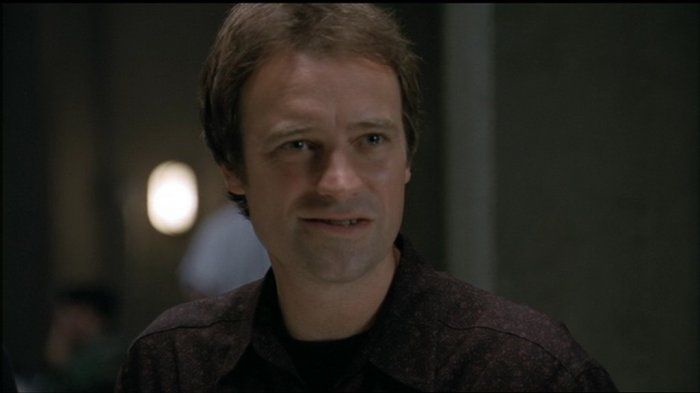
To create a contrast between McKay and Carter, the writers give the former arguments that favor facts over imagination and certainty over hope. The result is a character who is both obnoxious and intellectually frigid. It is no wonder that Carter eventually turns to McKay and says, “God, you’re a jerk.” Who wouldn’t have?
To compound McKay’s arrogance, the writers also make him a coward. When telling Carter he is allergic to citrus, he looks genuinely scared, and he appears even more terrified at the episode’s conclusion when he is sent to Russia. Given the way he has treated Carter, you feel that he is getting his just desserts.
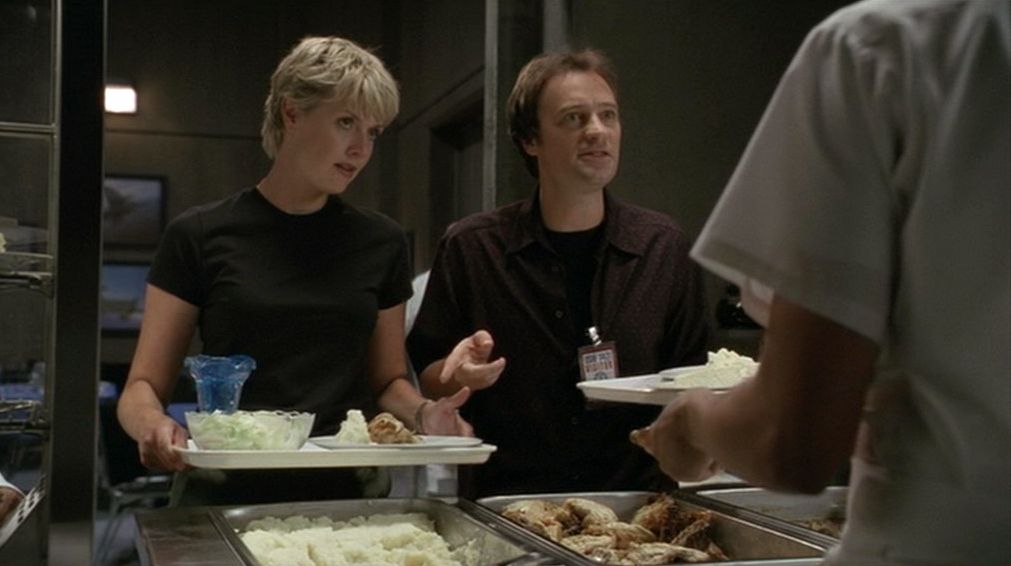
According to the traditions of action-adventure television, then, Dr. Rodney McKay is not someone you would expect audiences to warm to. Revisiting the character nine years from his last appearance, it’s striking how easily he could have been the Stargate answer to Battlestar Galactica’s oily Gaius Baltar (albeit less charming). On another show, he could so easily have been groomed as a secondary antagonist, so why has he become one of Stargate’s most beloved characters?
The Relatability of Rodney McKay
Ironically, the answer could be that McKay is much more like us than we would care to admit. Intellectual and emotional insecurity, fear of death, and the desire to be admired are widespread in Western society, as evidenced by the lucrative nature of the self-help industry. McKay is an extreme mixture of these traits, but evidently, many of us share at least some of his ingredients.
Presumably, the creators of Stargate Atlantis – Brad Wright and Robert C. Cooper – recognized this when they made the unlikeable McKay one of the show’s regular characters. It would have been safer to follow the precedent set by Stargate SG-1 in which all of the protagonists are traditionally heroic in some sense. Even the stoic Teal’c is unequivocally trustworthy and a ‘good guy’ not just in his allegiances but in his interactions with his colleagues. The early McKay, by contrast, had little time for people and created friction wherever he went.
What the writers foresaw was that someone like McKay would be forced to adapt if they were thrust into a team setting like the one they put him in on Atlantis. This pretext gave McKay the potential to connect with viewers on a personal level as his journey could be a mirror for similar experiences many of us have in our daily lives.
SGA’s writers were also savvy enough to know how to make us empathize with a character who could be intolerable. One of their tricks was to deflect our disdain with humor. Many of the most memorable quotes in all three Stargate series come out of McKay’s mouth, including the backhanded compliment he gives Carter when the two clash in their first encounter in the aforementioned ‘48 Hours’ (S5, Ep14):
“I wish I didn't find you so attractive. I've always had a weakness for dumb blondes.”
Seen in context, this line of dialogue is an exemplar of the adage that it is all in the delivery. Although McKay is simultaneously flattering and disparaging to Carter, his wit wins us over thanks to David Hewlett’s impeccable acting. Consequently, while we may not like McKay at this point, we want to see more of him because he is funny. Moreover, his sarcasm hints at a personality trait that would do much to make us overlook his impudence: chronic insecurity.
Peeling Back the Layers in ‘Redemption’ and ‘Hot Zone’
The link between McKay’s conceit and the social awkwardness that he hides behind a thin veil of witty insults feels natural because it is common for people to use humor to conceal low self-esteem. Still, our willingness to sympathize with people in this dilemma frequently overrides our inclination to ostracize them for their maddening habits. This is one reason why McKay’s character can win us over despite his best efforts not to.
The root of McKay’s insecurity and discomfort with unpredictability is revealed in Stargate SG-1’s Season 6 two-parter ‘Redemption’ (S6, Ep1-2) when we learn that his upbringing was unhappy.
“I had a not-so-comfortable childhood. My parents hated each other and blamed me. Music was my salvation. It has this perfect order.”
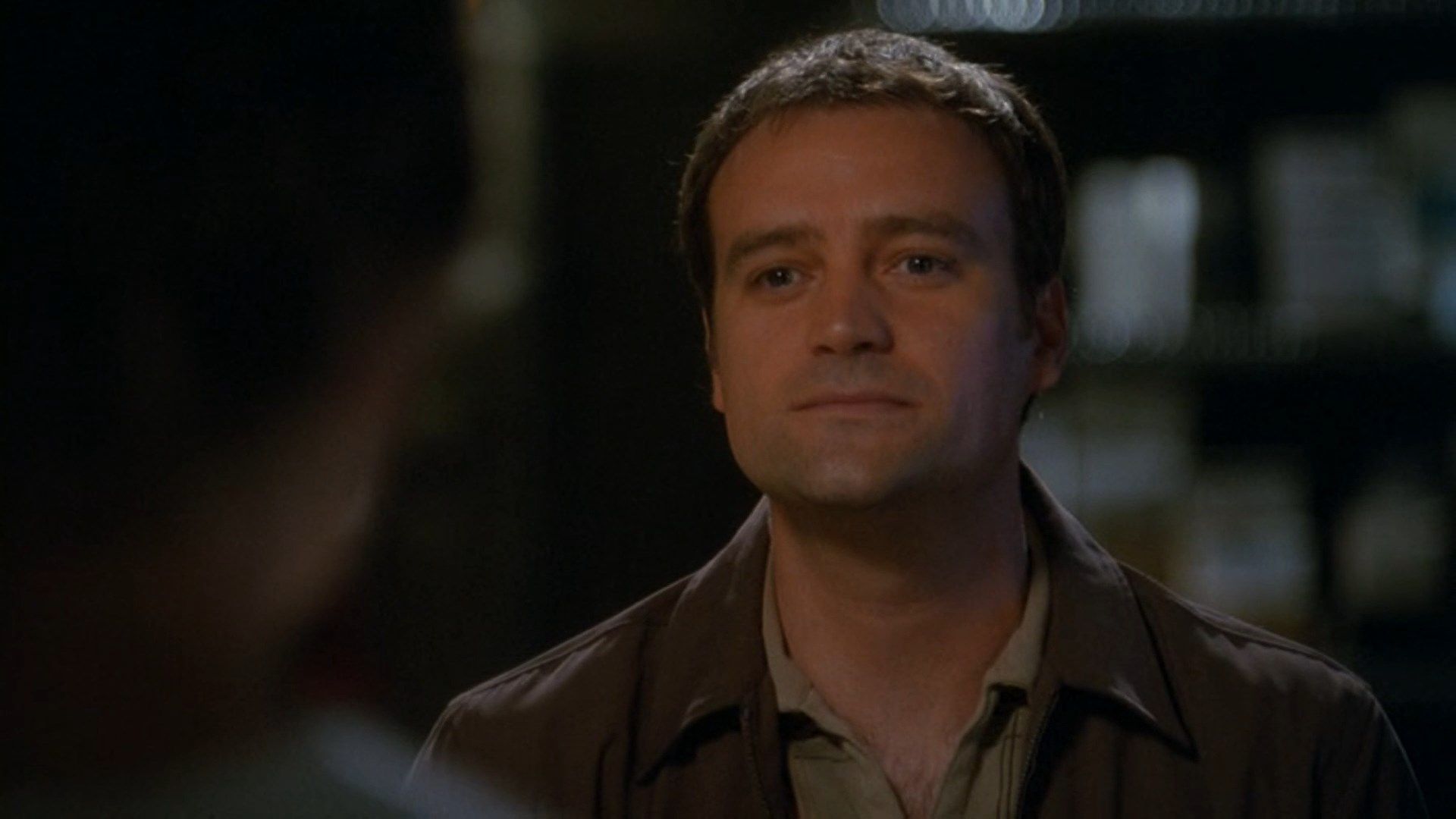
Meanwhile, in the Stargate Atlantis episode ‘Hot Zone’ (S1, Ep13) his feelings of isolation are further exposed when he talks about his sister, Jeannie:
“We’re not close. I don’t even know how you’d find her. She’s the only family I really have...”
These words put McKay’s need for recognition in a new context. His arrogance is a defensive strategy to keep people at bay. He is afraid that if he lets them in, they will hurt him as his parents did. As humans, we all want to be loved and we are sympathetic to those who are not. It is hard to hate McKay for being like us.
By providing these glimpses into McKay’s psyche, the writers of SG-1 and SGA make his character not merely tolerable but sympathetic. They also encourage us to respect him by putting him in situations where he has to accept, albeit grudgingly, that he must step outside his comfort zone.
When lives are on the line, McKay learns that there is no ‘I’ in ‘team’. Living and working closely with other people teaches him how to express emotions, give and accept praise, and that it isn’t always important to be right. He also proves himself to his peers with acts of kindness and courage. We appreciate what it is like for McKay to struggle through this social minefield because we are in it, too.
McKay’s Evolution in ‘The Defiant One’ and ‘Duet’
One of the earliest pivotal episodes in McKay’s transformation is in the Stargate Atlantis episode ‘The Defiant One’ (S1, Ep11), which puts him through an ordeal of guilt and remorse on the path to discovering that he does have a backbone. On an expedition to survey one of the Ancients’ satellites, Sheppard (Joe Flanigan), McKay, and two lesser characters who might as well be wearing red shirts pick up a distress call from a crashed millennia-old Wraith ship. They fly down to the planet to find a distinctly Alienesque derelict that gives everyone the creeps even though McKay detects no life signs aboard.
We all know where this is going and before long a surviving Wraith appears and puts paid to one ‘red shirt’ before dragging the other off as dessert. When Sheppard and McKay find the dead man, the latter’s anguish is evident as he blames himself for not realizing a Wraith could have been hibernating on the ship.
The missing team member, Dr. Brendan Gall (Richard Ian Cox), is quickly found. Unfortunately, he has been partially fed on by the Wraith who intends to come back for second helpings after raiding the team’s Puddle Jumper. Sheppard goes after their adversary leaving McKay to massage Gall’s toes in his efforts to get the injured man back on his feet. McKay follows Sheppard’s vain attempt to kill the Wraith on the radio and becomes increasingly anxious that the Colonel cannot do it alone:
“You want to get out there and help him, don’t you? … You’ve changed.”
Ultimately, Gall is proven right and McKay puts himself in harm’s way to save Sheppard. Whether he is driven by true courage or pragmatism is debatable, but it is also beside the point as his actions earn him the respect of his superiors and make him look to us like a better man.
The reserves of courage McKay discovers in ‘The Defiant One’ desert him early in the second season when comes face to face with a nemesis that is far more intimidating than life-sucking aliens. In the Stargate Atlantis episode ‘Duet’ (S2, Ep4) he has a date with botanist Katie Brown (Brenda James) but makes a complete hash of it when all he can think of to say to Brown in his pre-dinner toast is that she makes a great salad.
Luckily, all is not lost as, due to an incident involving the Wraith’s version of a transporter, McKay has Lt. Laura Cadman (Jaime Ray Newman)’s consciousness in his head along with his own. She takes over whenever he is about to make a fool of himself. She ends the date prematurely but not before she forces McKay into a passionate embrace with his love interest. The downside is that Cadman has the hots for Dr. Beckett. When she discovers her life is on the line later in the episode, she makes McKay plant one on the physician’s lips, too.
McKay’s relationship with Brown ultimately doesn’t go anywhere. Nonetheless, it conveys the message that if Brown sees something in him, we should, too. ‘Duet’ is also another episode in which McKay proves to be his own worst enemy and we see that he could be much happier if he just admitted that. He does eventually find such happiness in a relationship with Beckett (Paul McGillion)’s replacement as Chief Medical Office on Atlantis, Jennifer Keller (Jewel Staite), but not before he has turned many corners on the road to self-discovery.





